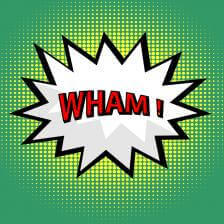How to Be a Better Student
Use these easy, scientifically proven techniques to get better grades, retain more information, and be a better student. Guest author Sunny Sea Gold of Scientific American MIND puts learning techniques under the microscope.

Still, educators and researchers say that you do not need the carefree mind of a grade-schooler or the late night stamina of a teenager to be a good student. All you need is the determination to learn something new and the right tools. Read on:
Get Visual

He used the graphic-novel approach himself to brush up on math when he was getting his Ph.D. “I bought the Cartoon Guide to Statistics. It was a really interesting book and got me back on track with what I should’ve already learned.” Such graphic guides exist for just about anything you might want to learn more about – genetics, the environment, the history of the universe. Kaplan even has an SAT vocabulary study guide in comic-book form.
Share Your Progress
Recopying my class notes or writing out questions and answers always helped me do better on tests when I was in school. Composing updates about what you are learning and posting on social networks such as Twitter could be the 2013 version of that practice. Researchers at Michigan State University recently found that students who regularly tweet as a part of their classes are more engaged with the course 
Join a Gym

In one particular
Test Yourself Before You Study
Psychologists have known for decades that taking a test helps people retain what they have learned better than if they simply spend more time studying. But recent research has revealed a surprising twist: it works even better if you take the test before you know anything about a subject, so you are all but guaranteed to get the answers wrong.
One experiment from 2009, for instance, found that students who tried to answer neurology test questions before reading up on the topic recalled more information a week later than students who were given a list of keywords and topics beforehand and even students who were given the same test questions and told to memorize them.
See also: How to Study, Part 2
The experts haven’t figured out quite yet why this counterintuitive learning trick works, but it appears that trying-and failing-to recall the information is key. If you don’t 

Reproduced with permission. Copyright ©2013 Scientific American, a division of Nature America, Inc. All rights reserved. By Sunny Sea Gold, Scientific American MIND.
Click to read more from Scientific American MIND
Special offer for QDT readers: FREE Trial Issue
Wham image courtesy of Shutterstock.
